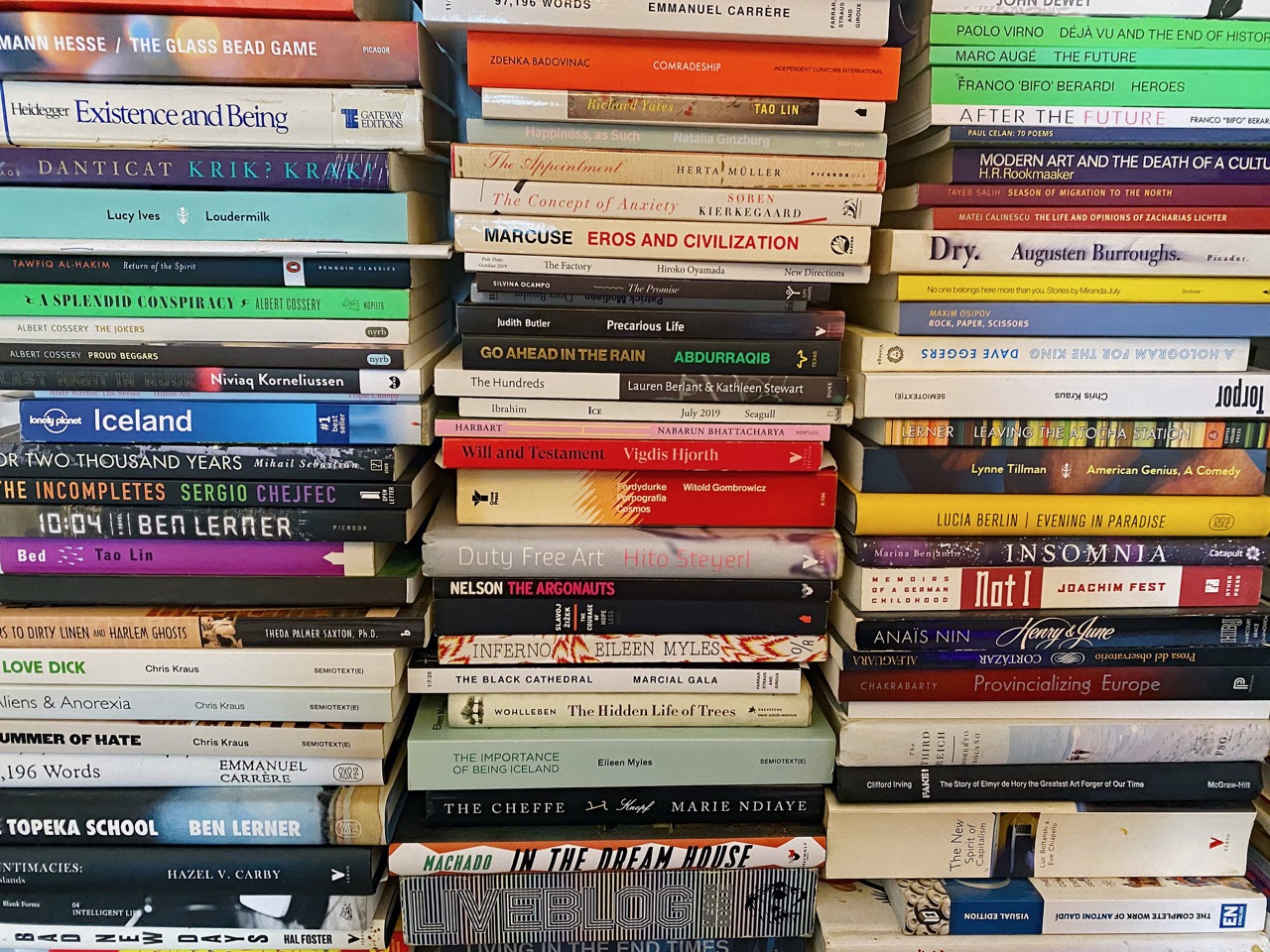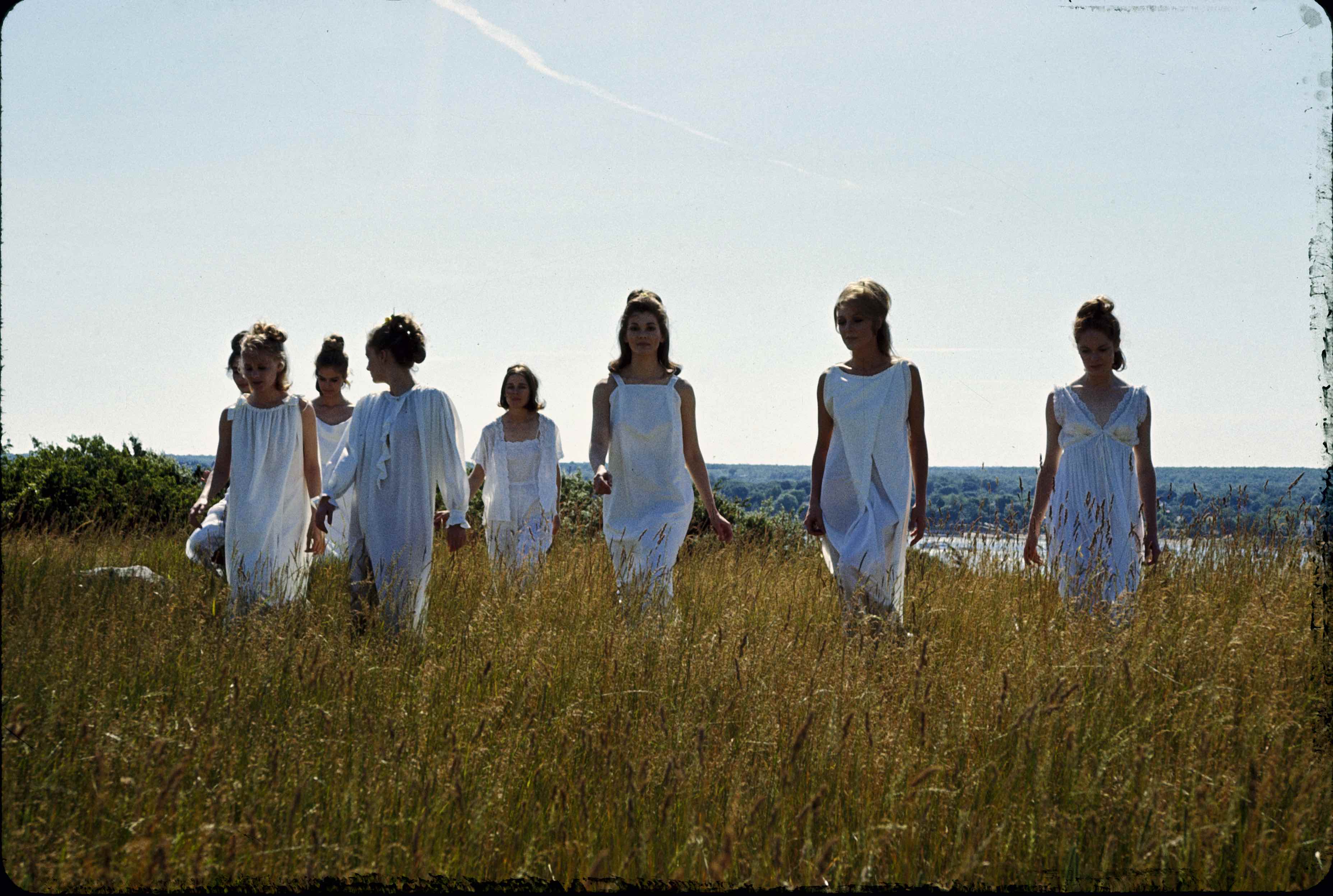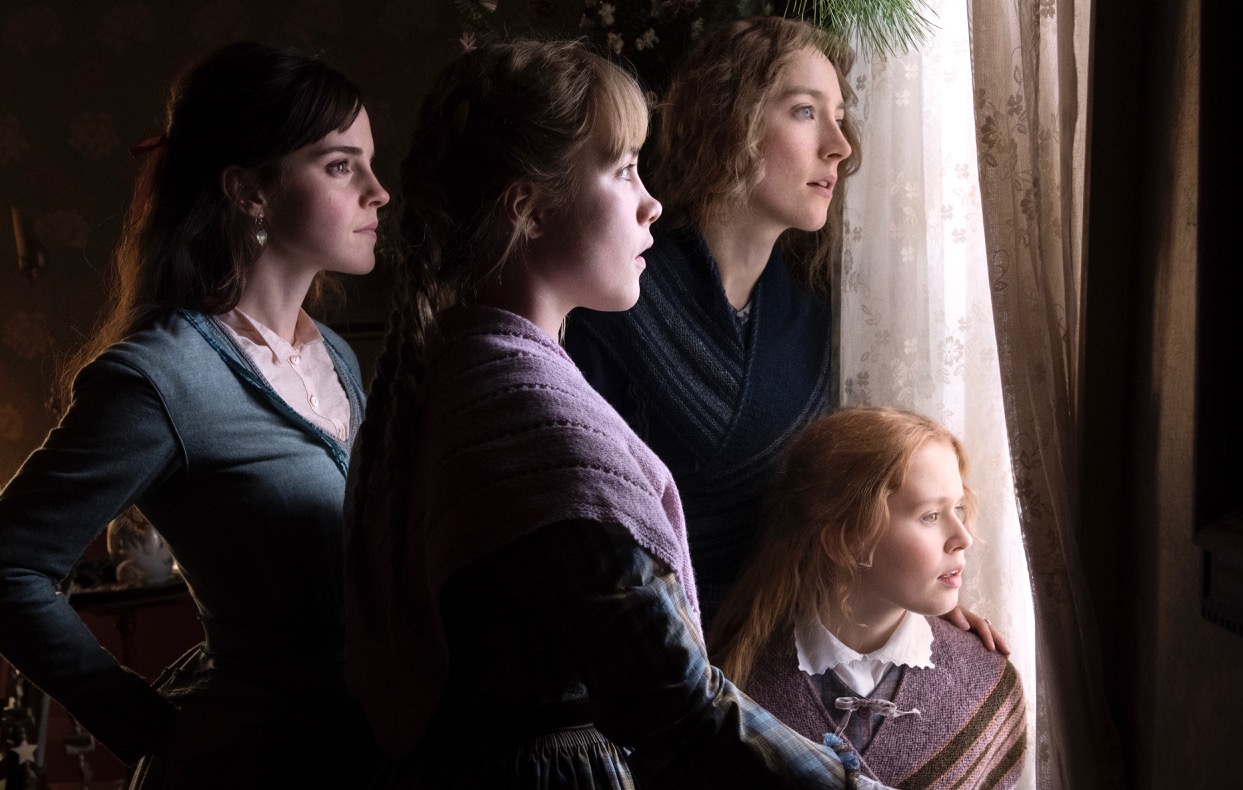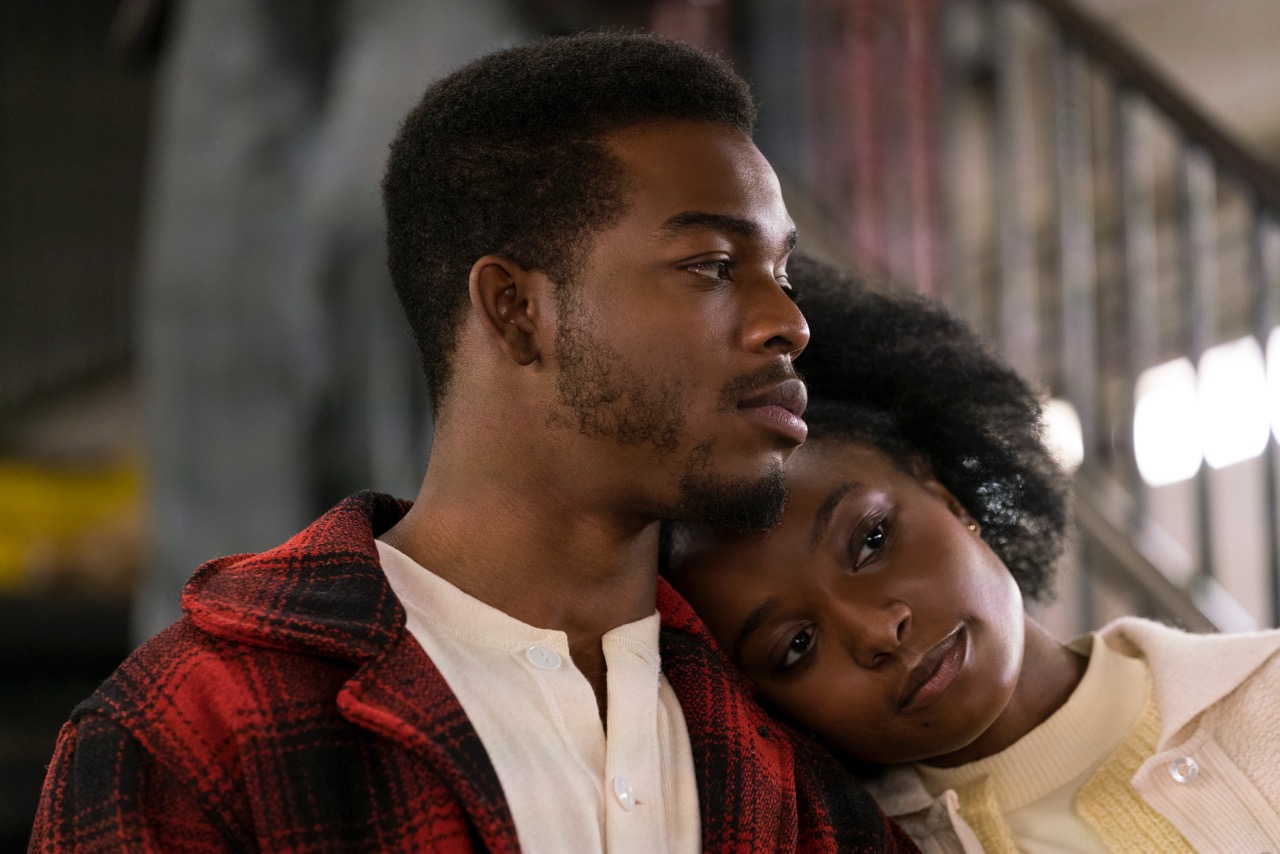 4 Columns
4 Columns

Some of the perilously stacked books in the managing editor’s living room. Most of these titles have not been adapted for film, but she would like to see the novels of Albert Cossery on the big screen, in particular.
4Columns returns with a new issue on September 4. This week we present our third summer missive: reflecting on page-to-screen transfers.
• • •
Like everything else, movie-release dates have been in constant flux since the coronavirus pandemic forced cinemas to close. One film that was originally scheduled to have a theatrical run in April (and whose opening may occur in the fall) ranks among the best of the year: Martin Eden, Pietro Marcello’s brash, vivid adaptation of Jack London’s 1909 Künstlerroman.

The cast of The Group, by Sidney Lumet. Image courtesy Kino Lorber.
The finest movies in the sprawling literary-adaptation genre are nimble interventions; they both honor the source text while offering fresh perspectives, new angles to explore. Tone is important—and often botched, as evidenced by Sidney Lumet’s The Group (1966), his clamorous version of Mary McCarthy’s eponymous best-selling novel from 1963, which traces the postgraduate lives of eight women from the Vassar class of 1933, the same year the author received her diploma from the school. The book, as film editor Melissa Anderson wrote in her review of Lumet’s project, “epitomizes McCarthy’s talents for mining—better yet, fracking—her autobiography to create a pungent, precisely detailed portrait of her milieu. . . . Served from a constant low simmer, McCarthy’s witty, caustic observations still singe.” In Lumet’s rendering, however, “the heat—and the volume—is turned way up. Several members of the central octet deliver their lines as if in the throes of delirium.”

Emma Watson as Meg, Saoirse Ronan as Jo, Eliza Scanlen as Beth, and Florence Pugh as Amy in Little Women. Photo: Wilson Webb. © 2019 CTMG, Inc. All rights reserved.
More successful, though not flawless, is Greta Gerwig’s 2019 take on a text that’s already been adapted numerous times: Little Women. In her piece on the movie, Michelle Orange notes the director’s occasionally heavy hand in delivering the first screen version of Louisa May Alcott’s 1868–69 novel for the twenty-first century: “If the result is rarely less than pleasing, Gerwig’s interventions have an inevitable quality. They operate in the service of peak timeliness, and at the expense of the book’s rich, inconvenient tangle of ideas about how and what a woman should be. In the name of freeing the novel’s true spirit, she favors those elements compatible with the modern grammar of female agency, and which affirm our obsession with individualism, self-expression, and relevance itself.”

Stephan James as Fonny and KiKi Layne as Tish in If Beale Street Could Talk. Photo: Tatum Mangus / Annapurna Pictures. © 2018 Annapurna Releasing, LLC. All rights reserved.
In Barry Jenkins’s If Beale Street Could Talk, his sinuous 2018 adaptation of James Baldwin’s 1974 novel of two lovers and their respective families in Harlem, the filmmaker does more than transfer this one particular work by a prodigious, wide-ranging writer for the screen: Jenkins continues the themes so essential to Baldwin’s essays, fiction, and plays. Andrew Chan praised the film for its “deeply Baldwinesque vision of black love as never-ending labor, as a kind of tireless vigilance.” Yet, Chan adds, the movie also reminds us “that love, no matter how steadfast or pragmatic, is still at the mercy of a broken world it can never quite transcend.” Jenkins’s film might be thought of as an indelible illustration of this potent observation by Baldwin: “Art is here to prove, and to help one bear, the fact that all safety is an illusion.”